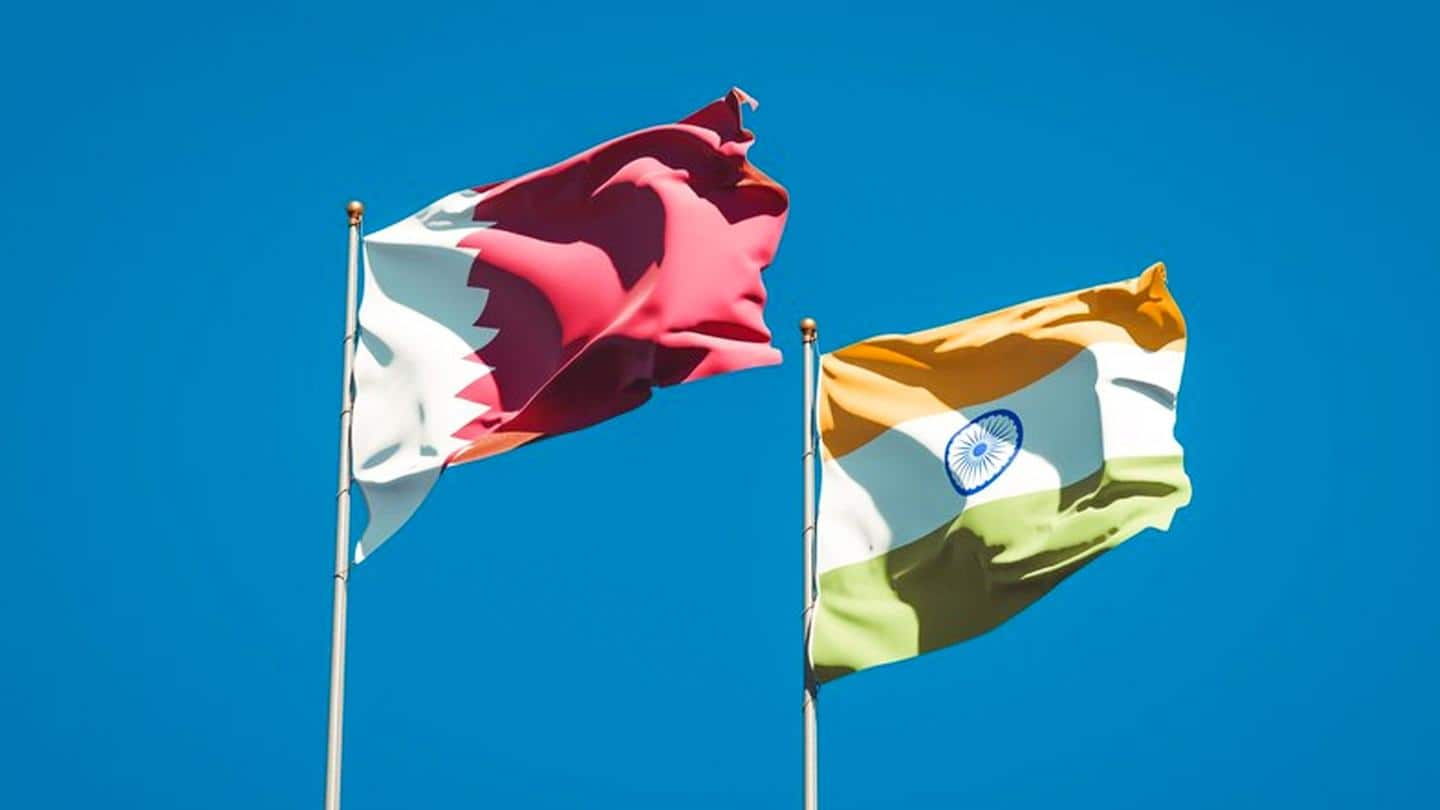
Qatar, Kuwait, Iran summon Indian envoys over Prophet Muhammad remarks
What's the story
India on Sunday responded to the official protest notes by Qatar, Kuwait, and Iran over the controversial remarks made by Bharatiya Janata Party (BJP) leaders Nupur Sharma and Naveen Kumar Jindal against Prophet Muhammad.
The saffron party on Sunday also issued a statement clarifying its stand on the issue.
"BJP is strictly against any ideology that insults any sect or religion," it said.
Context
Why does this story matter?
This came on a day when the BJP clarified its stand and took action against Sharma and Jindal.
Twitter was also abounding in hashtags calling to boycott Indian goods.
Sharma had also been named in several police cases for her remarks in Maharashtra and Telangana.
However, Sharma on Sunday took back her words, saying that her intentions were not to hurt anyone's religious sentiments.
Fringe elements
Qatar had summoned Indian ambassador
The Qatar minister of state for foreign affairs had written to the Indian ambassador and raised concerns regarding the offensive tweets by individuals in India denigrating the Islamic religious personality.
An Indian embassy spokesperson in Qatar said that Ambassador Deepak Mittal conveyed that "the tweets do not, in any manner, reflect the views of the Indian government. These are the views of fringe elements."
Information
Qatar's statement
"The state of Qatar stresses that these derogatory statements that incite religious hatred, globally insult Muslims, and indicate ignorance towards the pivotal role that Islam played in the world's developments and civilizations, including in India," said the Qatar Ministry of Foreign Affairs.
Protest notes
Kuwait, Iran summon Indian ambassadors
Kuwait summoned the Indian ambassador over "abusive statements" against the Prophet.
However, it also welcomed the action taken by the BJP against Sharma and Jindal.
Iran's Ministry of Foreign Affairs also summoned the Indian ambassador to Tehran over an "insult against the Prophet of Islam in an Indian TV show."
Notably, this comes a week before the Iranian foreign minister's first-ever trip to India.
Islamic symbols
Saudi Arabia condemns Sharma's remarks, hails BJP's actions
Saudi Arabia also condemned Sharma's remarks and said that it "reiterated the country's position calling for respect of beliefs and religions."
The Saudi foreign ministry, led by Prince Faisal Bin Farhan Al-Saud, asserted its "rejection of any violation and infringement of Islamic symbols and important figures of all religions."
It also welcomed BJP's decision to suspend Sharma for her controversial remarks.
Comments
What exactly did Sharma say?
During a recent debate on the Gyanvapi Mosque row on a TV channel, Sharma stated that because Muslims were insulting the Hindu faith by calling the unearthed Shivling a fountain, certain aspects in their religious scriptures may be mocked as well.
She then made a mention of Prophet Muhammad's marriage, too.
Her remarks sparked uproar and elicited responses from religious organizations and political parties.
Reaction
Sharma's remarks received global attention
Reports of Indians, who represent a large percentage of the workforce in the Gulf countries, being laid off by their Arab bosses began to surface on the internet, along with reports of many Gulf superstores removing Indian products.
The hashtag "Boycott India" started trending on Twitter.
In fact, the Grand Mufti of Oman, as well as popular Twitter accounts, have called for a boycott.
Questioned
What did Jindal say?
In his defense, Jindal said that he had only questioned "those people whose mentality is to constantly talk nonsense about Lord Shri Ram, Goddess Sita, Goddess Janaki, Lord Hanuman, and Goddess Saraswati."
"It doesn't mean that I want to hurt anyone's sentiments...I want to say very clearly that one should respect all religions... No religion propagates hatred," he was quoted by ANI as saying.
Communal-minded leaders
Shashi Tharoor hits out at BJP
Meanwhile, Indian National Congress leader Shashi Tharoor hit out at the BJP and said that "those who express bigotry at home should be aware of the consequences abroad."
He referred to reports citing that supermarkets in Gulf countries, including Saudi Arabia and Bahrain, removed Indian products after insulting remarks by the "communal-minded" leaders "allowed free rein for too long by the ruling party."